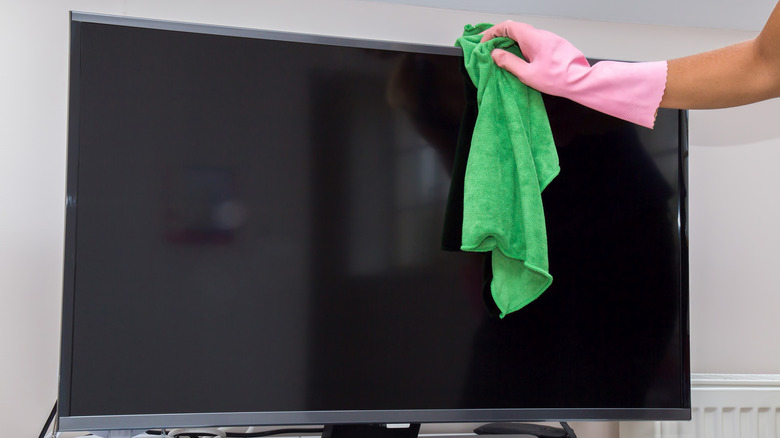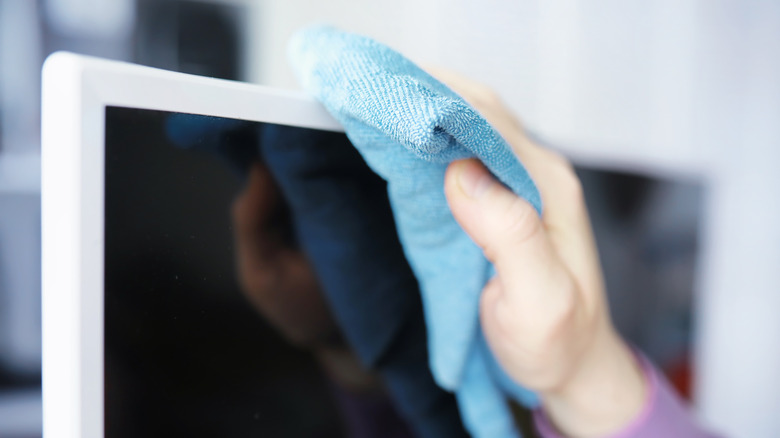Here's How Often You Need To Clean Your TV Screens
There's nothing like a crisp image that only a good quality television can provide. When you're watching a nail-biting drama in high-definition or cheering on your favorite team through a huge plasma TV, you don't want to miss a single minute of the action. However, these moments might be obscured if you're viewing them through a dirty screen. Whether it's greasy fingerprints, dust, grime, or spots from a spilled drink, the quality of your picture could suffer if these problems are not properly taken care of.
But before you spray on window cleaner and start scrubbing away at your expensive TV, you should take care and make certain you won't cause more harm than good. The Spruce noted that getting rid of those pesky marks on your screen too harshly could mean that you run the risk of kissing your warranty goodbye. Before doing any cleaning of your television, make sure to check with your unit's manual to ensure that you follow any guidelines that they require. Different TVs like LED, plasma, LCD, or even older tube models may have specific cleaning instructions. Harmful chemicals or abrasive sponges could scratch the sensitive surface of your television. However, that doesn't mean you should be scared of cleaning your entertainment system. Luckily, when you get into a solid routine, it only takes a few steps to easily clean your tv screen, so that you'll have a crystal clear view the next time you turn it on.
How to clean your TV screen and how often you should do it
You may have noticed a few spots or streaks on your television screen before but decided to look the other way. It's just a little smudge, after all. Right? Well, if dirt, liquids, or grease are left on sensitive LED or plasma surfaces, it could negatively affect your screen's performance.
No matter what model of TV you have, cleaning the screen should be done with great care and with the right materials. Whether you are simply dusting your television or wiping it clean to get rid of smudges, Insider recommended that you turn off your system before you begin. The blank screen helps you identify where the blemishes are and could save your system from electrical problems. Always use a soft microfiber cloth so as not to scratch the surface and do not apply too much pressure as it may knock over your TV or damage any protective coatings. A little distilled water on your cloth can help to gently wipe away spots but don't use too much, or the water could run down and get into the delicate circuitry. Taking care of your television should be done regularly, as Good Housekeeping suggested that you give your TV screen a cleaning every week, so that dirty marks or fingerprints aren't left to collect. This will help it to look and perform at its best.

